2018
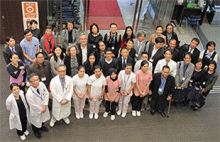
Universal Health Coverage (UHC) and Impact of Population Ageing Research Development Programme 2018
The Universal Health Coverage (UHC) and Impact of Population Ageing Research Development Programme in Yokohama City, Japan, took place from 26-29 March 2018. It was organized jointly by the WHO Kobe Center and Kanagawa Prefecture Government, with the support of Japan’s Ministry of Health, Labour and Welfare. The workshop focused on the development of research proposals for short-listed ASEAN researchers who responded to the July 2017 WHO research call for proposals about UHC research relevant to the planning and strengthening of national health systems. This research programme was launched as a follow-up to the ASEAN-Japan Health Ministers Meeting in July 2017.
Mr Yuji Kuroiwa, the Governor of Kanagawa prefecture, declared his support for and strong commitment to innovative health care policies which are responsive to a super-aged society. He also warmly welcomed delegates from research teams representing 9 ASEAN countries and Japan, to Yokohama. “I hope that through this workshop, participants will become well-informed about Kanagawa’s innovative health care policy, and establish networks for future collaborations between Kanagawa and ASEAN researchers,” Governor Kuroiwa stated.
“The World Health Organization and WHO Centre for Health Development are fully committed to supporting research on UHC in ASEAN countries,” stated Dr Sarah Louise Barber, Director of the WHO Kobe Centre.
On the first day of proceedings, participants had opportunities to hear about perspectives on UHC from the viewpoint of Kanagawa Prefecture, including an introduction to Kanagawa Prefecture’s Me-Byo concept, which aims to create a new social model for responding to a super-aged society. Following this and in a bid to enhance understanding of the objectives and goals of WKC’s Programme of Research on UHC in ASEAN countries, WKC presented overviews on 1) the development of ASEAN health systems, past and present, within the contexts of population ageing and national burdens of disease; and 2) WKC’s quality assurance framework for research. The afternoon session offered ASEAN research teams the opportunity to present their research proposals in order to enhance mutual understanding and thus, stimulate discussions among researchers from different countries.
On the second day, participants went on field visits to Kanagawa Prefecture’s Life Innovation Center in Kawasaki City and other health institutes in Kawasaki City’s Tonomachi International Strategic Zone. The third and the fourth days were dedicated to individual proposal development, and WHO staff provided support and guidance to individual teams as part of efforts to strengthen the proposals.
Dr Carmelita Canila, Assistant Professor, University of the Philippines said, “This workshop provided valuable opportunities to work with WHO staff to improve the research proposal. I appreciate all input as they enabled us to focus on what is strategic in-country.” Dr Tran Thi Mai Oanh, Director, Health Strategy and Policy Institute, Hanoi said, “The session that our team found the most useful is the individualized support for protocol development and discussions with WHO staff because they helped us to know how to improve our research proposal in detail”. The programme ended with presentations by each research team about their revised research proposals and implementation timelines.
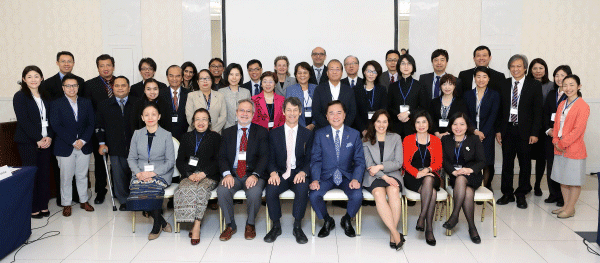
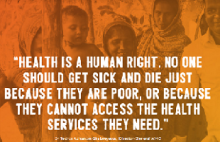
WHO Kobe Centre New Research Forum
April 7 is World Health Day. Each year, the WHO chooses a theme relating to health to raise awareness across the world. This year’s theme is Universal Health Coverage (UHC).
The WHO Kobe Centre held the HAT Kobe Health Fair jointly with Kobe City for World Health Day and the 20th anniversary of KOBE Biomedical Innovation Cluster. The forum introduced new research from the WHO Kobe Centre.
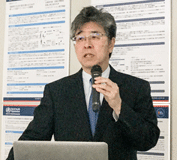 Dr. Fumihiro Tajima, Professor at the Department of Rehabilitation Medicine, Wakayama Medical University, gave a lecture on the topic “Science about how to manage hospitalizations so as not to bedridden.” He explained that, “Astronauts in outer space cannot move for three weeks and, when they return to Earth, they cannot stand on their own. As this is the case for astronauts with young, strong bodies, it applies even more to the elderly. Movement is important. Even if a person is hospitalized temporarily, they should not be resting and confined to bed. In Wakayama Medical University Hospital, we have people stand on their own feet and walk the day after an operation. If they are bedridden, they gradually lose the ability to move. In this new research, hospitalized patients are wearing measuring devices with sensors that are similar to adhesive skin patches, and we are measuring their activity levels and developing a method for the optimum movement for people while they are in hospital.”
Dr. Fumihiro Tajima, Professor at the Department of Rehabilitation Medicine, Wakayama Medical University, gave a lecture on the topic “Science about how to manage hospitalizations so as not to bedridden.” He explained that, “Astronauts in outer space cannot move for three weeks and, when they return to Earth, they cannot stand on their own. As this is the case for astronauts with young, strong bodies, it applies even more to the elderly. Movement is important. Even if a person is hospitalized temporarily, they should not be resting and confined to bed. In Wakayama Medical University Hospital, we have people stand on their own feet and walk the day after an operation. If they are bedridden, they gradually lose the ability to move. In this new research, hospitalized patients are wearing measuring devices with sensors that are similar to adhesive skin patches, and we are measuring their activity levels and developing a method for the optimum movement for people while they are in hospital.”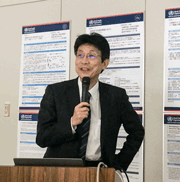 Dr. Ryuichi Saura, the Director and Professor of the Department of Physical and Rehabilitation Medicine, Division of Comprehensive Medicine, Osaka Medical College, gave a talk on “Research and perspectives about assistive technology in an aging society.” “In an age when many people are living to 100, it is important that we extend healthy life expectancy. As we age, the number of falls increases. Support and long term nursing care can be triggered by a fall. In other words, it is better if we do not fall. Current research is considering whether we can predict a fall. What are the risks of falling? What are the triggers when people do fall? The balance of our bodies? Changes in our walking speed or center of gravity? We asked 50 healthy people aged 65 and over to wear a device that records their movements, and are recording their everyday actions, considering postures and activities that have high risks of falls.”
Dr. Ryuichi Saura, the Director and Professor of the Department of Physical and Rehabilitation Medicine, Division of Comprehensive Medicine, Osaka Medical College, gave a talk on “Research and perspectives about assistive technology in an aging society.” “In an age when many people are living to 100, it is important that we extend healthy life expectancy. As we age, the number of falls increases. Support and long term nursing care can be triggered by a fall. In other words, it is better if we do not fall. Current research is considering whether we can predict a fall. What are the risks of falling? What are the triggers when people do fall? The balance of our bodies? Changes in our walking speed or center of gravity? We asked 50 healthy people aged 65 and over to wear a device that records their movements, and are recording their everyday actions, considering postures and activities that have high risks of falls.”
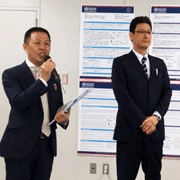
Dr. Akira Kido, Professor and Director of the Department of Rehabilitation Medicine in Nara Medical University Hospital, gave a lecture on the theme of “measurement of rehabilitation effect of older persons.” “People’s movements in their everyday lives vary depending on the person. By having someone wear an accelerometer and measuring these movements, we understand that there are temporal characteristics, and that there are differences in the acceleration and density of movements depending on the person. In this research we consider effective rehabilitation. The outcome of rehabilitation is affected by the amount of daily movement. Although we use the single word ‘rehabilitation,’ there are times that we can move immediately after an operation and times when we cannot, depending on the disease. In this research, we split disease into six categories, including macro cardiovascular, cerebrovascular, respiratory, and cancerous, and study the effect different kinds of activities have on rehabilitation and recovery from the different disease of patients who have been hospitalized. We are also measuring movements after patients have returned home, using smartphones, and carrying out follow-ups.”
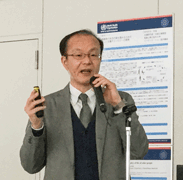 Dr. Yoji Nagai, a Professor at the Clinical & Translational Research Center at Kobe University, gave a talk on the topic of the “Kobe Dementia Project: devising new strategies to strengthen health systems.” “As our society ages, dementia increases. I believe that, even if a person has developed dementia, it is important to prevent long term care. In this research, we are studying the relationship between cognitive function at certain points in time and the risk of future long term care, using a simple questionnaire that anyone can answer easily, with around 80,000 elderly residents of Kobe City as the subjects. This is a three-year project composed of four research projects, and already, since the start of this research in August last year, the forwarding and return of questionnaires and an intervention program targeting high-risk persons are progressing. With the full cooperation of Kobe City, we have separated all the data from the personal information, and are analyzing it.”
Dr. Yoji Nagai, a Professor at the Clinical & Translational Research Center at Kobe University, gave a talk on the topic of the “Kobe Dementia Project: devising new strategies to strengthen health systems.” “As our society ages, dementia increases. I believe that, even if a person has developed dementia, it is important to prevent long term care. In this research, we are studying the relationship between cognitive function at certain points in time and the risk of future long term care, using a simple questionnaire that anyone can answer easily, with around 80,000 elderly residents of Kobe City as the subjects. This is a three-year project composed of four research projects, and already, since the start of this research in August last year, the forwarding and return of questionnaires and an intervention program targeting high-risk persons are progressing. With the full cooperation of Kobe City, we have separated all the data from the personal information, and are analyzing it.”
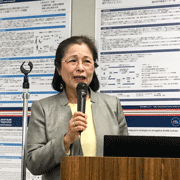
Dr. Aiko Yamamoto, Professor, Research Institute of Nursing Care for People and Community in the University of Hyogo, gave a lecture on the topic of the “Development of Specific Care Strategies to Maintain and Recover Survivors’ Health after Disasters.” “Large-scale disasters are increasing worldwide. Recently, in 2016 in Japan, the Kumamoto Earthquake and the Central Tottori earthquake occurred; we need to be prepared for disasters. It is difficult for older people to evacuate, and, depending on the disaster, chronic disease can worsen, and they cannot receive treatment from their family doctor. In this research we are investigating the needs of older people who require long term care when a disaster strikes. In addition, personnel in the affected area, who are required to continue with their work while they themselves are also victims, feel a lack of motivation, physical fatigue, confusion, and pain. In this research, we are studying the psychological care of the medical staff and public administration workers in the disaster-stricken area by implementing a program to prevent PTSD and depression, and carrying out evaluations.”
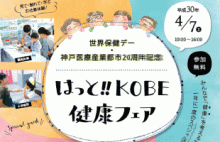
WHO Kobe Centre New Research Forum @ HAT Kobe Health Fair
World Health Day is celebrated on 7 April every year to mark the anniversary of the founding of the World Health Organization.
It provides us with a unique opportunity to mobilize action around a specific health topic of concern to people all over the world.
The theme of our 2018 World Health Day campaign is Universal Health Coverage (UHC).
Universal health coverage is about ensuring all people can get quality health services, where and when they need them, without suffering financial hardship. No one should have to choose between good health and other life necessities. The WHO Kobe Centre (WKC) conducts research, fosters innovative solutions, and translates them into policies and actions to achieve sustainable universal health coverage, in particular in light of population ageing and demographic transition.
To celebrate World Health Day and commemorate the 20th anniversary of the KBIC: KOBE Biomedical Innovation Cluster, WKC and Kobe City will jointly organize an open, public Forum – the “HAT Kobe Fair” at WKC and JICA Kansai in HAT Kobe.
At the WKC office, we will organize a presentation showcasing the new centre’s research on UHC and Ageing (details attached). We will also organize the tours of the WHO Kobe Centre.
At JICA Kansai, the Olympic athlete, Mr Nobuharu Asahara, will give a lecture about “Keep challenging, and get a chance”. For more details, please visit the Fair website (Japanese only).
Commemorating the WHD/20th anniversary of the KBIC
HAT Kobe Health Fair
Time: 7 April, 2018 10:00-16:00 (WKC venue 10:00-17:00)
Venue: WHO Kobe Centre
(1-5-1 Wakinohama Kaigandori, Chuo-ku, Kobe City, Hyogo Prefecture)
JICA Kansai International Center
(1-5-2 Wakinohama Kaigandori, Chuo-ku, Kobe City, Hyogo Prefecture)
WHO Kobe Centre New Research Forum Programme:
@ WHO Kobe Centre 10:00-12:00
“The science about how to manage hospitalizations so as not to bedridden”
Dr Fumihiro Tajima, Professor, Department of Rehabilitation Medicine,
Wakayama Medical University
“Research and perspectives about assistive technology in an aging society”
Dr Ryuichi Saura, Director and Professor, Department of Physical and Rehabilitation Medicine, Division of Comprehensive Medicine, Osaka Medical College
“Measurement of rehabilitation effect of older persons”
Dr Akira Kido, Professor and Director, Department of Rehabilitation Medicine,
Nara Medical University Hospital
“Kobe Dementia Project: Devising new strategies to strengthen health systems”
Dr Yoji Nagai, Professor, Clinical & Translational Research Center, Kobe University
“Development of Specific Care Strategies to Maintain and Recover Survivors’ Health after Disasters”
Dr Aiko Yamamoto, Professor, Research Institute of Nursing Care for People and Community, University of Hyogo
12:30-12:50
WHO Kobe Centre Tour/Presentation (1)
15:00-15:20
WHO Kobe Centre Tour/Presentation (2)
Registration at JICA Kansai required for the WHO Kobe Centre Tour/Presentation
Free of charge
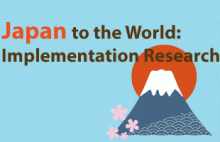
WKC Launched New Research Initiative for UHC and Ageing Populations - Lessons learned from Japan to the World
People throughout the world are living longer, healthier lives. Today, most people can expect to live into their sixties and beyond. By 2050, the world’s population aged 60 years and older is expected to reach 2 billion, up from 900 million in 2015.
Japan has long been a front runner leading the world enabling its people to live long healthy lives. Many lessons from Japan can be adapted for other countries and their health systems to enable them to learn from Japan’s experience in facing powerful and transforming demographic forces.
Last year, the WHO Centre of the Health Development (WHO Kobe Centre) called for proposals from Japan-based research institutions for implementation research to promote sustainable Universal Health Coverage (UHC) enabling functional ability for older persons, and to identify lessons that can contribute to other countries’ efforts.
WHO Kobe Centre is pleased to announce that following five research projects have been selected through a rigorous competitive process, and have been successfully launched.
Dr Sarah Louise Barber, Director of the WHO Kobe Centre says ”This research focuses on documenting and evaluating the policies and technologies in Japan. We hope that such experiences will provide useful lessons for other countries facing the same challenges. ”
Dr Fumihiro Tajima, Professor, Department of Rehabilitation Medicine, Wakayama Medical University and Dr Aiko Yamamoto, Professor, Research Institute of Nursing Care for People and Community, University of Hyogo will be participating the WHO Kobe Centre New Research Forum on April 7.
- Alphabetical order by PI's last name
Experiences of Assistive Products Use among Older People in Japan
Dr Misato Nihei, Lecturer, Graduate School of Frontier Sciences, The University of Tokyo
The use of assistive products can reduce the effects of several types of impairment, allowing older people to live more comfortably at home and remain active and engaged members of society. The very old population of Japan offers a unique source of information about the use of assistive products in later life. In this study, we will conduct a survey of non-institutionalized individuals, 90 years old and above, about their experiences with assistive products. The aim is to provide important insights to service providers in Japan and globally about strategies for the optimal provision of assistive products to older populations.
New assistive technologies to enhance quality of life of older people
Dr Fumihiro Tajima, Professor, Department of Rehabilitation Medicine, Wakayama Medical University
Sustained activities of daily living (ADL) and quality of life (QOL) are vital issues for the older people. This research is a joint project among five universities in the Kansai Region and will contribute to a new strategy for high ADL and QOL of older persons by a) using a novel algorithm to quantify the physical activities that maintain ADL from electromyogram signals of the femoral muscles, b) using a novel wearable accelerometer to establish the risk of specific physical activities or postures on the frequency of falls, and c) assessing the activity levels of inpatients to define the ideal activity level for better outcomes of rehabilitation therapy.
Evidence for improving health care provision to ensure universal health coverage amid rapid population ageing in Japan
Dr Shinichi Tomioka, Assistant Professor, Department of Preventive Medicine and Community Health, University of Occupational and Environmental Health, Japan (UOEH)
The goal of this study is to contribute to future health policy and epidemiological research for sustainable universal health coverage (UHC) amid rapid population ageing in Japan. The study will analyse large-scale health care data from Japan including Diagnosis Procedure Combination (DPC) data, medical reimbursement receipts and the Japanese Surveillance in Post-Extreme Emergencies and Disasters (J-SPEED). The aim is to provide evidence that will guide more efficient, equitable and cost-effective health care delivery in Japan at the primary and secondary care levels spanning four domains: 1) outpatient care, 2) home care, 3) disaster health care, and 4) acute hospital care.
ICF-based assessment tool development for care skill training in Japanese long-term care system
Dr Takako Tsutsui, Professor, Department of Public Health, University of Hyogo
An increasing number of countries are facing the problem of population ageing, which is putting continuous stress on long-term care. The situation is particularly alarming in East Asia, where the demand for care workers is expected to at least double by 2050. Thus, a training system for long-term care staffs that supports universal health coverage is needed. To address shortages in long-term care workers, Japan has developed a “Technical Intern Training Programme”. This study focuses on the Technical Intern Training Programme, and aims to develop tools to evaluate the process of transferring care skills to foreign trainees. The study will also examine the possibility of utilizing the International Classification of Functioning, Disability and Health (ICF) to apply existing tools to other countries.
Development of Specific Care Strategies to Maintain and Recover Survivors’ Health after Disasters
Dr Aiko Yamamoto, Professor, Research Institute of Nursing Care for People and Community, University of Hyogo
The increasing scale and frequency of disasters has put priority on the mitigation of disaster risk and impact, with special attention to the health of vulnerable populations. This research project contains two projects. Project 1 will identify fundamental needs, challenges of vulnerable survivors (older populations) through a qualitative analysis of personal interviews. Project 2 will evaluate therapeutic programmes for survivors’ mental states. Effective implementation of preventive interventions for public health and social service workers in the disaster-affected communities will also be considered. The research results of the two projects will provide fundamental data for future disaster risk management projects and policies for vulnerable populations.
Research briefs
- Dr Misato Nihei, Lecturer, Graduate School of Frontier Sciences, The University of Tokyo
pdf, 875kb - Japanese version
pdf, 575kb - Dr Fumihiro Tajima, Professor, Department of Rehabilitation Medicine, Wakayama Medical University
pdf, 700kb - Japanese version
pdf, 597kb - Dr Shinichi Tomioka, Assistant Professor, Department of Preventive Medicine and Community Health, University of Occupational and Environmental Health, Japan (UOEH)
pdf, 837kb - Japanese version
pdf, 760kb - Dr Takako Tsutsui, Professor, Department of Public Health, University of Hyogo
pdf, 1.27Mb - Japanese version
pdf, 880kb - Dr Aiko Yamamoto, Professor, Research Institute of Nursing Care for People and Community, University of Hyogo
pdf, 829kb - Japanese version
pdf, 734kb
Call for proposals (2017)
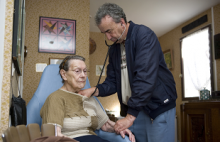
Review of service delivery models for older people that maximize quality of life
“The individual causes of mortality are preventable but death itself is not.’’
- Zygmunt Bauman, sociologist
We enter an era of human history that is achieving unprecedented longevity. Health systems need to shift from providing curative care to promoting quality of life as societies get older and as end-of-life care becomes more complex.
To improve health systems, WKC worked with King’s College London to conduct a rapid scoping review of service delivery models for older people for high quality of life at the end-of-life. This study was a rapid systematic scoping review of 72 systematic reviews. Two overarching classifications of service models were identified. The first is Integrated Geriatric Care, which aimed to improve physical functioning, and the second is Integrated Palliative Care, which aimed to alleviate disease symptoms. Areas of synergy include people-centered care; health education for service users and providers; and the deployment of a multi-professional workforce.
Dr Paul Ong, Technical Officer of the WHO Kobe Centre said, ‘’End-of-life care is a critical area of concern for health systems in long lived societies and WKC is proud to be developing a research agenda in this area.’’
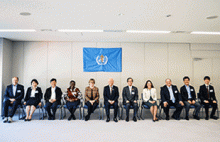
The 21st Meeting of the Advisory Committee Report
The meeting discussed progress on the Center’s strategic objectives for 2016-17; research achievements to advance UHC, ageing related metrics, innovations, capacity building activities and the knowledge hub. A special lunch session was organized to present the Center’s dementia research project. At the end of the meeting, a technical discussion was held on monitoring UHC in light of population ageing. The Committee recommended developing a long-term research plan and quality assurance strategy to improve the relevance and quality of the Center’s research.
Related links
- The 21st Meeting of the Advisory Committee Report
pdf, 637kb - Technical briefs in main program areas: UHC, Ageing Metrics and Lessons from Japan, and Innovations
pdf, 399kb - Concept notes for future work: Innovations to accelerate UHC in light of population ageing, Monitoring UHC in light of population ageing
pdf, 2.85Mb - Research project briefs
pdf, 872kb - WHO Kobe Centre (WKC) Advisory Committee Members
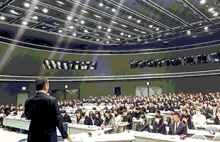
"What the world and Japan will be like in 2050" High School Students discuss global affairs
On February 3 2018, the WHO Kobe Centre, along with the Hyogo Prefectural Board of Education and Osaka University, organized the WKC forum “High School Students’ Day: Let’s Discuss International Relations” at the Kobe Fashion Mart Hall. About 450 students participated, mainly from high schools in Hyogo prefecture, and shared their views of what the world and Japan would look like in 2050.
In the keynote speech entitled, “The World and Japan in 2050, A Model for the World”, Mr Shinjiro Nozaki, External Relations Officer of the WHO Kobe Centre said, ”By 2050, Japan will have experienced many population changes including a further lowering in birth-rate and population decline, along with an increase in its overall age. The Japanese economy will have slowed down, and its GDP is expected to rank 8th in the world. The mass media in Japan is already filled with pessimistic stories about the country’s future. ‘Who will take care of Japan’s elders? Who will pay taxes to support Japan’s public programs?’, they ask. But I do not think we need to be so pessimistic. Japan has been a world leader while also being super-ageing society and has learnt many precious lessons on how to adapt. Japan will show the world how an ageing society can be a healthy society where people enjoy their lives.”
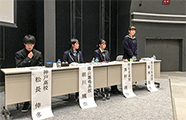
In the following panel discussion, four high school students took the podium. First, Mr. Kota Matsunaga, a second-year student at Kobe High School said, "I think the society with a shrinking population needs to be more productive. Luckily, Japanese industry has a rich experience for productivity, but must create new technologies, AI for an example”.
Ms. Rina Maekawa, a second-year student at Sasayama Houmei High School said, "We need to pay more attention to hunger in the world. There is enough food to feed the world but people still suffer from hunger. We, high school students, can try to reduce food loss and waste.”
Next, Ms. Risa Nishimura, a second-year student at Akashi Kita High School year said, "We need to lean from the old Japanese spirit: to place more importance on spiritual wealth than material wealth. And in the era of science and technologies, we must empower people to be masters, not slaves.”
Finally, Ms. Mina Wakimasu, a second-year student at Kakogawa Higashi High School, said, "Japan is too dependent on outside sources and imports. Utilizing current and new technologies, I think Japan can contribute to the emerging economies in a better way by building mutual relationships. We need to pay more attention on how the goods and products are made in the origin countries.”
In the following Q&A session, topics for discussion included concerns about age discrimination, the oppression of technology such as the prevalence of smart phones and their addictive use by high school students, the replacement of human labour with AI, and Japan’s role in the global refugee crisis.
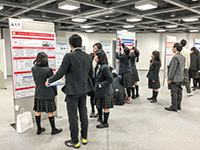
In the afternoon, 74 oral and poster sessions by the students were given.
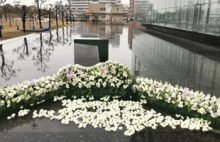
1.17- Kobe reminds us again of the importance of disaster preparedness
The annual ceremony was held in HAT Kobe where international agencies and national/local institutes for disaster management and preparedness are concentrated to create a global information and innovation hub, and where the WHO Kobe Centre is located.
The WKC Director, Sarah Louise Barber, attended the ceremony representing WHO paying respect. Dr Barber noted “I would like to express my great respect to Hyogo/Kobe’s long standing commitment in reconstruction and their efforts to support other disaster stricken areas in the world using precious lessons they learnt from the Great Hanshin Awaji Earthquake.”
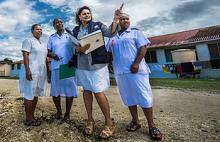
2017 Year in review: Key health issues
Review and relive some of the biggest health stories from WHO in 2017.
2017
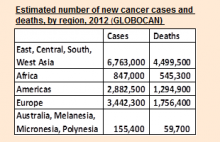
RFP:The burden of cancer and its health system impact in ASEAN member countries and policy responses in light of Universal Health Coverage
The objective of this study is to assess the burden of disease from cancer across ASEAN countries, the reasons for such variations, the extent to which the cases can be prevented and effectively managed in terms of public policy and regulatory measures, and effective clinical treatment and control programs.
We welcome application from researchers especially in Japan and ASEAN countries.
Submission deadline: 5 January 2018, 18:00 Japan time

